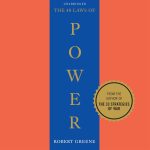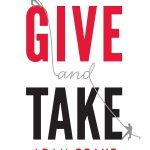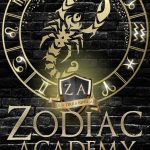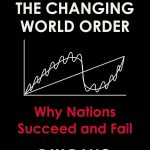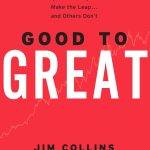
Customers say
Customers find the book thought-provoking, with one review describing it as an excellent in-depth exploration of consciousness. Moreover, the writing style receives positive feedback for its beautiful prose and poetic grounding. However, customers disagree on the book’s readability, with some finding it full of life while others say it’s impossible to read. Additionally, the sturdiness of the book receives mixed reviews, with several customers reporting poor condition.
Make It Yours – See Your Price On Amazon!
Your Sales Price $19.00 - $14.99
A quick rundown of this product’s key features:
Winner of the International Lannan Literary Award for Nonfiction
Animal tracks, word magic, the speech of stones, the power of letters, and the taste of the wind all figure prominently in this intellectual tour de force that returns us to our senses and to the sensuous terrain that sustains us. This major work of ecological philosophy startles the senses out of habitual ways of perception.
For a thousand generations, human beings viewed themselves as part of the wider community of nature, and they carried on active relationships not only with other people with other animals, plants, and natural objects (including mountains, rivers, winds, and weather patters) that we have only lately come to think of as “inanimate.” How, then, did humans come to sever their ancient reciprocity with the natural world? What will it take for us to recover a sustaining relation with the breathing earth?
In The Spell of the Sensuous David Abram draws on sources as diverse as the philosophy of Merleau-Ponty, Balinese shamanism, Apache storytelling, and his own experience as an accomplished sleight-of-hand of magician to reveal the subtle dependence of human cognition on the natural environment. He explores the character of perception and excavates the sensual foundations of language, which–even at its most abstract–echoes the calls and cries of the earth. On every page of this lyrical work, Abram weaves his arguments with a passion, a precision, and an intellectual daring that recall such writers as Loren Eisleley, Annie Dillard, and Barry Lopez.
Our Top Reviews
Reviewer: Doctor Dần
Rating: 5.0 out of 5 stars
Title: For anyone interested in ecology, philosophy, or seeking a deeper connection to nature
Review: This is a book which will create a shift in how you see the world and stays with you once you finish reading it. David Abram beautifully weaves together philosophy, anthropology, & his personal observation to explore the deep connections between human beings, language, and the natural world in a poetic and accessible manner. He invites us to slow down and immerse themselves in the intricate relationships between their senses and their surroundings. Although this book isn’t light reading, read it in short bursts; its many ideas require reflection and help reawaken our sensory engagement with the earth and our understanding of our place in the world.
Reviewer: Mim Chapman
Rating: 5.0 out of 5 stars
Title: A must-read for everyone who loves nature and learning.
Review: I read this nearly 20 years ago, and just re-read it, enjoying it even more the second time because a group met to discuss it. It is poetic, with beauty and deep meaning, helping us bridge the gap between modern technological life and our roots with the earth.
Reviewer: Michael
Rating: 5.0 out of 5 stars
Title: One Key Idea: We are only human as we engage with the “Other-Than-Human”. I
Review: I have long loved this book. I had occasion to recommend it again, and also have a moment to write a note about it… a rare synchronicity! So this: The few other reviews do a great job of describing the framework of relationship of the human to ‘other-than-human’ as exemplified in the evolution of increasingly complex abstractions of our communication systems, from pictograph to alphabet. From representation to communication by agreement that a symbol, and its related sounds mean a thing.What is passed over is the weaving of the story between the technical and the experienced. So I introduced the book thusly:It is an interesting book that weaves two stories together.. One of the experienced, “Other-Than-Human” world – of all types, from animal to insect, and charting the path of the human communication from the pictorial representation of the world as experienced, to the abstractions that make up the alphabet and the dictionary of words. Most of which have little direct association w the thing they are describing. In that movement of what might be called sophistication, he posits that our human experience has become increasingly split off from the rest of the world as our filter of engagement & experiences with the Other World(s) is increasingly via the cognitive & descriptive and less of the wordless, amazed, truly “awe-some” experience. I know I feel this lack.It is split that creates so many of the large and complex problems we are dealing with today. We tend to think we understand the systems we are sometimes rather slapdashedly mucking around with… We do not. What we do not typically reckon with is how integrated life is. And that it is more than a hallmark card, or a sappy new age chant to say that everything is connected to everything…Not knowing this is central to what we call “unintended consequences”, but really are more accurately “unconscious consequences”. While we have also gained some learning and benefit from our reductionist science, there is no doubt of that… if we do not heed the opening introduction of this book, and its basic prescription for our consideration : That to be human… a vital, life living , life supporting person/life force we Must have some meaningful relationship with the Other-Than-Human.For other books that work out that thesis in fact if not directly I’d suggest The Elephant Whisperer, and related books. And almost anything by Carl Safina. Especially “Song of the Blue Ocean”.
Reviewer: Jane K from Athens, GA
Rating: 4.0 out of 5 stars
Title: truly amazing and eye-opening, but a little problematic at the end…
Review: I’m really glad I read Abram’s more recent book BECOMING ANIMAL before I read THE SPELL OF THE SENSUOUS. Why? Well, I found BECOMING ANIMAL to be a more elegant introduction to his ideas. The prose is really beautiful. BECOMING ANIMAL does not have lots of endnotes like SPELL does, which I guess is because SPELL is used as a supplemental text for ecology classes. Anyway, they are both very worthwhile reads if you’re interested in getting outside of your Western mind for a while.First the good stuff about SPELL OF THE SENSUOUS: It’s a great introduction to some major differences in how indigenous/oral-language people experience, interact with, and communicate with their world vs. how written-language people do, which, Abram says, basically happened after the Greek alphabet came into use, which was the first completely phonetic alphabet (no symbols left that involve imagery that ties the alphabetic letter to the tangible world). He uses great examples of Australian Aborigines, Inuit, and southwestern Native Americans to show how oral-language people communicate with their natural world, and not just with animals, but plants and rocks and rivers and really everything. He emphasizes the importance of place in the indigenous culture and how “story” is so completely and intimately integrated with geography that story can’t even sensibly be understood apart from place. He talks a lot about Western linear time vs. the indigenous tendency toward cyclical time, and how oral-language people’s life events are a continual re-creation of their world–a fascinating concept. There really is so much that’s amazing about this book and it is clear that Abram has spent much of his life studying and researching these ideas, as he has lived with indigenous peoples and learned from shamans. He also weaves in the research of others very effectively. His analyses are filtered through his understanding of phenomenology–another really interesting aspect of the book.I would have given THE SPELL OF THE SENSUOUS five stars except for something Abram did toward the end, which I saw as a bit unfair. He creates a somewhat plausible argument based on the ancient Hebrew alphabet (no vowels) for why Judaism has been somewhat unfairly labeled anti-nature. I have no problem with this. But then he uses this as his departure point for laying at the feet of Christianity (its texts written in Greek) the real split between man and nature. Well, believe me, I’m no defender of Christianity (I’m agnostic) and I realize it has wreaked havoc with indigenous cultures and with nature. But, please! I have read the Old Testament and the New, and even though the Old Testament includes some very beautiful intertwining with nature–the pastoral scenes in Psalms, for example, and the Song of Solomon–it also has plenty of violence and destruction of nature by the Hebrews–especially from the time of Moses on. My real problem with what Abram does here is that his evidence is so one-legged and flimsy. Dr. Abram, why even bring this up if you’re not willing to defend it better than you have here? Maybe you can write a whole book on this topic, and if you do I will gladly read it. But you’ve yet to convince me that Judaism is philosophically any more innocent than Christianity in its attitude toward nature!
Reviewer: C. St John
Rating: 5.0 out of 5 stars
Title:
Review: A landmark book, a necessary read for any thinking person, regarding our limits of perception, how they came to be limited, about language and writing as ways to shut us down or open us up, about ecology and our broken relationship with the living Earth, and more, all very elequently written, his writting is near prose some of the time ,I plan to reread it after a few months of pause, it will be a joy to revisit it.
Reviewer: Sarah Joiner
Rating: 5.0 out of 5 stars
Title:
Review: This book has a lot of big words and quite a lot of repetition. However, the theory david Abram propounds is highly original. it doesnt talk down to the reader, is probably taken from his master thesis.It is an in depth descrition of the state humanity has found itself in, from a really unusual perspective.The natural language of the Earth arround us, and the way indigenous languages have always spoken from within their relationship with the specifics of locaction is something he experienced firsthand. He traces how we have lost that connection, as our language has used artificial means through which to communicate. he traced the breath based script of Hebrew, and later developments, so the point where modern humans so often communicate via entirely electronic medium, and the dire effects this has had, in terms of disconnect from the natural world. We forget that our existence is housed in an “animal” body. Afascinating read.
Reviewer: Fedtke, Caterina
Rating: 5.0 out of 5 stars
Title:
Review: Sehr gute Analyse von der Beziehung des Menschen zur Natur.
Reviewer: Chester
Rating: 5.0 out of 5 stars
Title:
Review: Very much enjoying this fascinating book!
Reviewer: Robert D. Hale
Rating: 4.0 out of 5 stars
Title:
Review: This is an important, possibly vitally important work. It is eye-opening and thought-provoking. The author’s main theme – the intimacy with nature experienced by preliterate societies and its loss in literate ones – is nigh impossible effectively to convey in words, especially the written word (as emphasised by the author), or even to oneself in thought, as the moment one tries to do so the matter abstracts itself from that which is experienced. The author makes valient efforts and the reader does get from this an intellectual understanding of his proposition. But he uses far too many words, repeats himself endlessly (and without much variety in expression). A book a third of the length would have been more elegant, more effective, better. In his postscript to this twentieth anniversary edition, the author seems a little too assured of the noteworthiness and literary merit of his work. But read my first sentence again, then read the book.
Price effective as of Apr 07, 2025 22:18:33 UTC
As an Amazon Associate Dealors may receive a commission for purchases made through these links.


